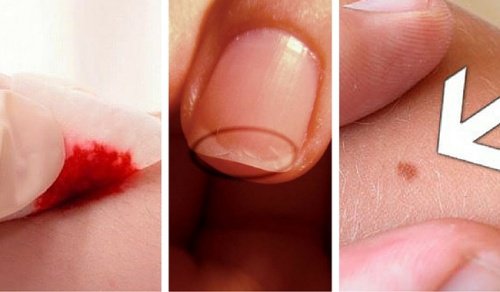5 Reasons to not Skip Your Dermatologist Visit


Reviewed and approved by the doctor José Gerardo Rosciano Paganelli
The human body is so mysterious and complicated, that we often ask ourselves, “What type of doctor should I visit?” when we start noticing concerning changes in our body think about a visit to your dermatologist.
For instance, we know that skin problems cause negative reactions in the hair and cause mucus to develop due to factors such as stress and poor nutrition.
Furthermore, prolonged exposure to the sun and environmental pollution are two reasons that we may need to make room in our schedule for a dermatologist visit.
You will soon find out that in addition to those reasons, there are many more reasons you should visit the dermatologist.
In many cases, we often visit the wrong doctor when we should instead visit the dermatologist.
For instance, parents only think to go to a pediatrician when their child has a problem, but there are some cases when a dermatologist is needed instead.
Nevertheless, below are reasons why you should visit the dermatologist.
1. If you’re experiencing hair loss, schedule a dermatologist visit
Hair is a physical feature that many people believe add to their overall beauty. No matter the length or color, hair is usually a hook that draws in the attention of the opposite sex.
However, you need to visit a dermatologist as soon as possible if you have recently experienced any of the following symptoms:
- Locks of your hair stay on the pillow when you wake up in the morning
- Hair has lost it’s healthy shine
- Locks of your hair fall out when you run your hand through it
- The roots of hair get greasier every day
In certain cases, you should also visit the endocrinologist to see whether you have a scalp or glandular problem.
Discover more: 10 Reasons that Might Explain Your Hair Loss
2. When your wounds take a long time to heal

If you fall and hurt yourself then you may have a small wound, but this should heal quickly.
However, the healing process is not so quick for some people. In fact, some people suffer from constant wounds that take weeks and even months to heal.
This is a warning that is telling you should find out what’s happening to your skin. In order to identify whether you need to consult with a dermatologist, pay attention to what your blood stains look like, which afterwards turn into scabs.
It’s important not to ignore your wounds that start to bleed again once they have started to heal.
If you experience the case above, we would recommend a dermatologist visit, seeing as you may have more than just a skin problem. For instance, the example above could be a sign of diabetes or of other illnesses.
Remember that there will be situations in which you must visit a dermatologist as well as another specialist at the same time.
3. When you a find a new “beauty mark”

Beauty marks are small adornments that nature gave us. They make children look cuter and makes men and women look sexy just by appearing above the lip or on the cheek.
In fact, even some people go as far as to draw beauty marks on their face in order to obtain more sex appeal.
However, not all beauty marks are as positive as we think.
For example, if you notice that you have a beauty mark that you didn’t have before, then you should take this as a sign to visit the dermatologist.
Discover more: Star Baby and Rainbow Baby Mark a Different Motherhood
4. Fragile, dry or flaky nails

Women, as well as men, have a cover letter that they carry around with them everywhere: their nails. This is because our nails reflect how we take care of ourselves and even how we feed ourselves.
In other words, our nails tell other people a lot about us and can be essential when searching for a job or evaluating our health.
Maybe your nails have always been brittle, flaky or dull, or maybe they’ve just started to look this way. These symptoms are a sign that you could have health problems.
Therefore, this is the moment when you should schedule a dermatologist visit with a trusted professional, as he or she can provide you with some insight as to why your nails are like this.
5. Itching in your genital area have a visit to the dermatologist

Another surprising reason to visit the dermatologist, which is in fact the most important on the list, is this last one. This is because we often imagine that gynecologists and urologists are in charge of what goes on in our genital region.
However, sometimes a person can have fungi or a type of skin infection in the genital area, which must be treated by a dermatologist with great caution.
In fact, according to Dr Armstrong: “…dermatologists should regularly screen patients with psoriasis for signs of Candida infection.”
With regards to this, some dermatologists agree that the most common condition is lichen sclerosus, which is a condition that causes itching. If left untreated, this condition could progress into squamous cell cancer.
Although this is not the only situation that can occur, it’s one of the most common ones.
Just as we express what we feel using our words, our skin is also capable of revealing a lot of what is happening within our body. This is why we need to pay attention to the signs it shows us.
Remember that our skin is the biggest body organ and you shouldn’t underestimate what happens with it. Nor should we underestimate what happens to our hair and nails, which are both connected to the skin.
When your organs have problems, you’ll be able to detect these problems by paying attention to your skin, and consequently scheduling a dermatologist visit!
We hope you liked our article, for more information on remedies click below!
All cited sources were thoroughly reviewed by our team to ensure their quality, reliability, currency, and validity. The bibliography of this article was considered reliable and of academic or scientific accuracy.
- Fawcett RS, et al. (2004). Nail abnormalities: Clues to systemic disease.
ncbi.nlm.nih.gov/pubmed/15053406 - What you need to know about alopecia areata. (n.d.).
naaf.org/alopecia-areata - Ariel, Irving M. (1981). A Historical Introduction: Is the beauty mark a mark of beauty or a potentially dangerous cancer? Malignant Melanoma, Appleton-Century-Crofts, ISBN 978-0-8385-6114-0
- Universidad de Utah. When Should You See a Dermatologist? https://healthcare.utah.edu/dermatology/when-to-see-dermatologist.php
- Instituto Nacional de Artritis y Enfermedades Musculoesqueléticas y de la Piel. Liquen escleroso. https://www.niams.nih.gov/es/informacion-de-salud/liquen-escleroso
This text is provided for informational purposes only and does not replace consultation with a professional. If in doubt, consult your specialist.








